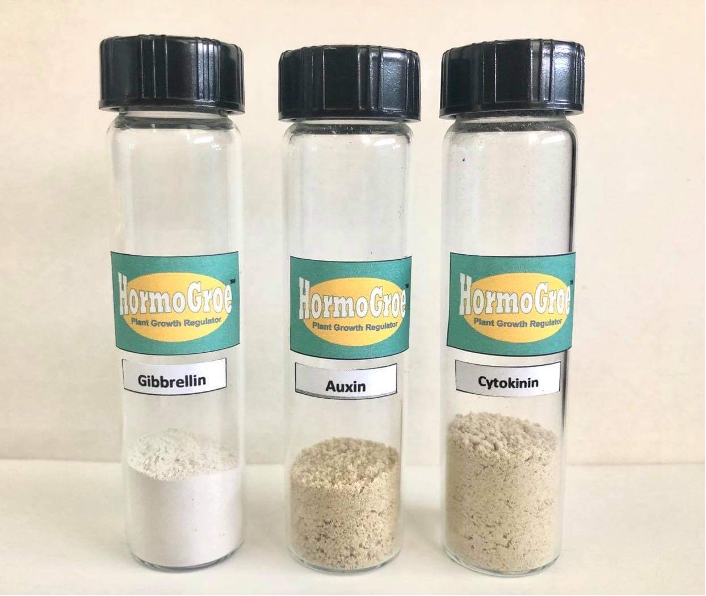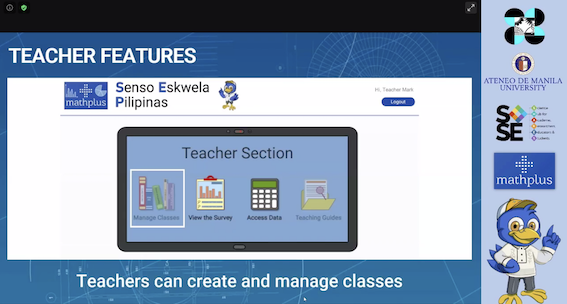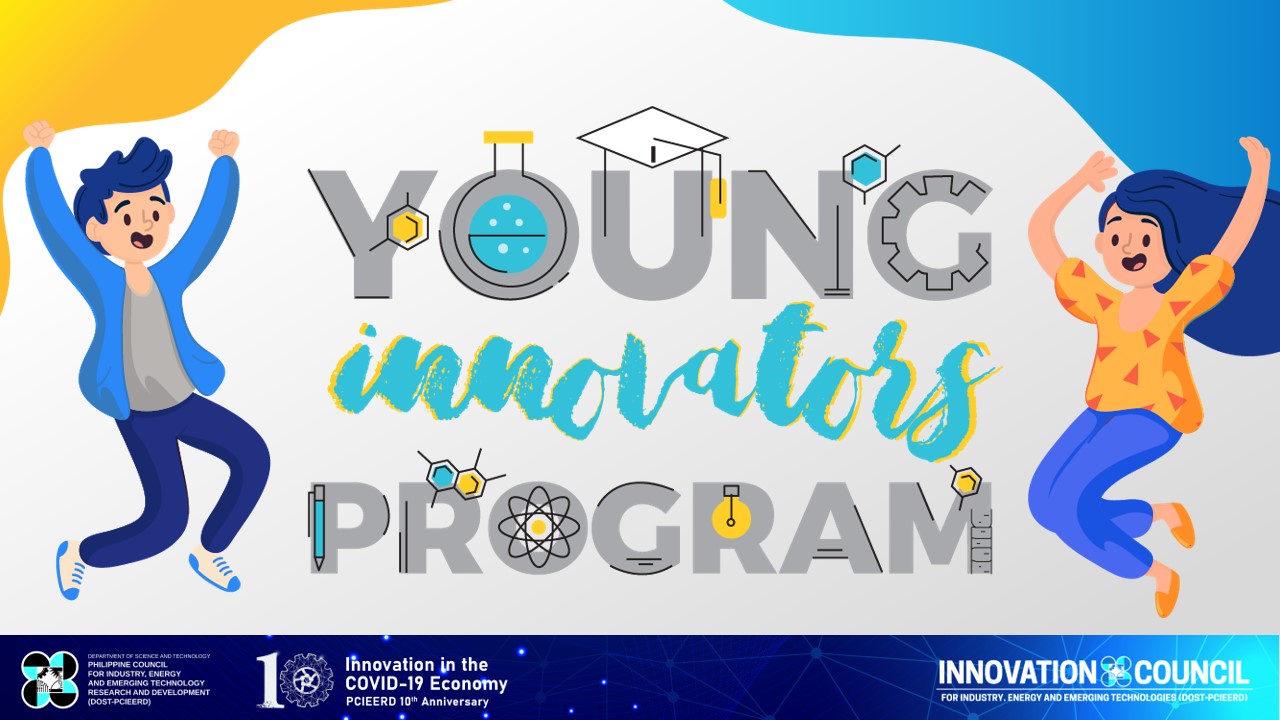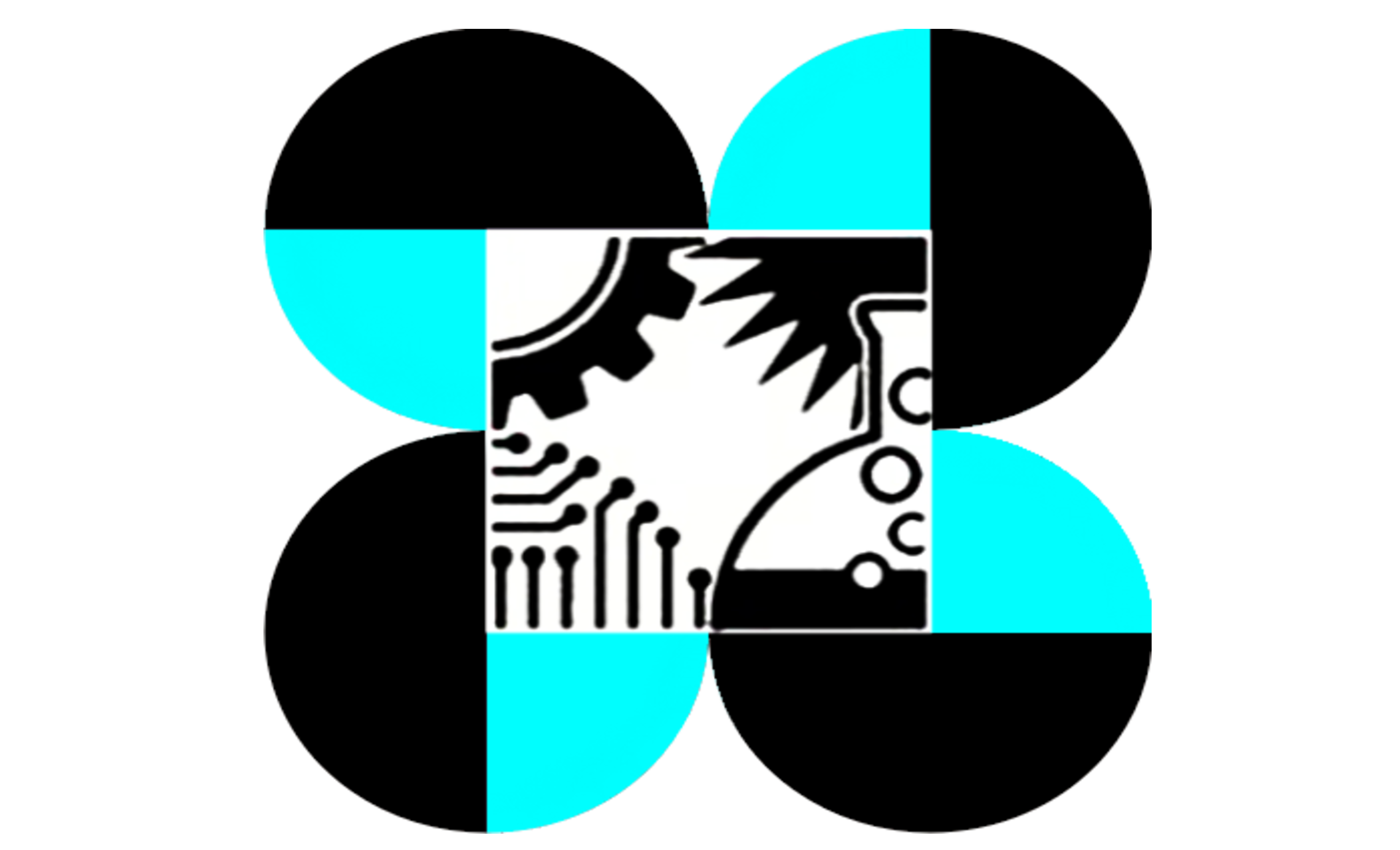Nine student groups from different parts of the country bagged research grants up to P800,000 each as the Department of Science and Technology – Philippine Council for Industry, Energy and Emerging Technology Research and Development (DOST-PCIEERD) announces its winners of the Young Innovators’ Program.
In a virtual ceremony, DOST-PCIEERD inked contracts with the students and their mentors for the grant which covers the laboratory expenses, testing consumables, and honorarium for the teachers and students.
DOST-PCIEERD Executive Director Dr. Enrico C. Paringit expressed optimism over the future of the Philippines’ scientific community with new and budding scientists taking on the challenge of conducting research and development despite of the current pandemic.
“As leader and partner in enabling innovations, we will continue in the pursuit of fresh talents and support their endeavors to pursue research and development in the country. We hope that this research grant will be entice them to get into careers in research and development in the country,” he said. “
Paringit added: “We express admiration for the young researchers on their determination to take on challenges to conduct research and development projects that offer solutions. They will serve as our brights spots for the future of science and technology in our country. They will serve as an inspiration for younger generations to follow. These YIPs also are the source of pride for their respective institutions.”
These are the nine YIP awardees, the title of their research projects, the academic institutions they represent, and the names of the members and mentors:
- SPHERE: An Ultra-wideband Technology-based Innovation for Search and Rescue Operations in the Philippines
School: Mapua University
This project will utilize ultra-wide band (UWB) technology that can detect heart rate regardless of the type of wall blocking the victim. It comes with a remote control and added features vital for the search and rescue operations like Global Positioning System
(GPS) to pin the exact location of victims, built-in lights to better see the situation underground, camera that has a night vision, and a speaker for the controller to speak with the victims underneath the debris.
Team Members: Ma. Cathyrine Ravina, Denisse Joy Dayao, Janela Zambrano
Mentor: Engr. Marvin Noroa
- Fungal chitosan-based Microbeads: A Heavy Metal Soil-based Biobsorbent
School: Polytechnic University of the Philippines – Sta. Mesa
The main objective of this study is to innovate fungal chitosan-based microbeads into heavy metal soil-based biobsorbent. These students will collect five (5) fungal samples to isolate and cultivate fungal samples in Potato Dextrose Agar (PDA) extract chitosan using the fungal isolates, and eventually investigate the biosorption capabilities and percentage efficiency of the extracted chitosan in copper, chromium and arsenic. Once the fungal chitosan microbeads are made, they will continue to test and optimize biosorption capabilities and % efficiency of the produced fungal chitosan microbeads in copper, chromium and arsenic.
Team Members: Irah Faye B. Garzon, Raven Elyze E. Laurella, and Ghimel P. Espinosa
Mentor: Dr. Lourdes V. Alvarez
- iTrashBin (Intelligent Trash Bin) Internet-of-Things Trash Bin for Quarantine and Isolation Facilities
School: Navotas National Science High School
The idea of this project is to create a robot designed to collect the waste products of COVID-19 patients and suspected ones. At the same time, to disinfect the waste products on the process. In order to do these, the researcher will adapt the system of Internet-of-things (IOT) in which the device will use the internet as a way of transferring data through a smart phone to control the robot.
Team Member: John Emmanuel Javines
Mentor: Mr. Don King O. Evangelista
- Shock Electrodialysis Apparatus (S.E.A.)
School: Philippine Science High School - Main Campus
The S.E.A Project aims to provide users with clean, more accessible freshwater through shockwave electrodialysis without the need to exert much effort. This significantly lessens the impact of water scarcity and saltwater intrusion in coastal/brackish water communities and provides new innovations for the market that can be patentable and accessible to most customers.
Team Members: Paris Miguel U. Bereber, John David F. Magnaye, Davis Nicholo A. Magpantay
Mentor: Engr. Boon Kristoffer P. Lauw
- PROJECT LINGAP LANGHAP: A Low-cost 3D Printed Air Purifier System using Activated Carbon Biomass Filter and Philippine Bamboo Exterior
School: Philippine Science High School - Central Luzon Campus
Project LINGAP LANGHAP will develop a low-cost indoor air purifier using activated carbon biomass filter that is designed to have aesthetically pleasing exterior using Philippine bamboo. The team will conduct user acceptance testing (UAT) and validation testing among target-users and experts.
Team Members: Carlos Jerard Dela Cruz, Jan Paolo Pineda, and Maria Michaela Tumonong
Mentor: Mr. Joel T. Bautista
- Proton-Exchange Membrane (PEM) Fuel Cell Using Electrode Processed from Kaong Waste Product
School: Cavite State University
This project from the students of the Cavite State University will create a proton-exchange membrane (PEM) fuel cell that will be developed using sugar palm or Kaong waste product. The Kaong tree is abundant in upland Cavite. The project can develop an energy storage device that can generate a maximum potential of 1.2V.
Team Members: Alexis Anne C. Bonus, Renz John Kurt S. Reyes, and Vien Isabella R. Rom
Mentor: Ms. Sheryl D. Fenol
- Hg and Pb Detection Kit Utilizing D-Limonene from Sweet Orange (Citrus sinensis) Peelings
School: University of Mindanao – Main Campus
The study will make an easy and efficient Hg and Pb detection kit to synthesize D-limonene from orange peelings and test its efficacy for Hg and Pb detection from water sources near mining areas. The team will fabricate the detection kits to be easily used by any person, especially those in resource-limited communities near mining areas.
Team Member: Steph Kier S. Ponteras
Mentor: Dr. Chosel P. Lawagon
- Landfill Bioremediation through Biodegradative activities of Pleurotus ostreatus (Oyster Mushroom) to High Density Polyethylene (HDPE)
School: Angeles University Foundation Integrated School
The project primarily aims to determine a more ecological approach in addressing plastic garbage issues with the investigation of biodegradative activities of Pleurotus ostreatus (Oyster mushroom) on High Density Polyethylene (HDPE), Polyhydroxybutyrate (PHB), and Oxo-biodegradable plastics.
Team Members: Nikka C. Banez, Princess Angelica S. Besonia, Kyla Carmina F. Consul, Jules Hyacinth B. Macasaet, and Ma. Angelica D. Gomez
Mentor: Dr. Analiza J. Molina and Mr. Emmanuel Carbungco
- Synthesis of nanocellulose from durian rinds for the preparation of a self-healing smart concrete with augmented mechanical properties
School: University of Mindanao – Main Campus
The project team endeavors to develop self-healing smart concrete, specifically to reduce the occurrence of cracks in cement-based products, augment mechanical properties of reinforced cement, and synthesize nanocellulose and nanosilica from durian rind together with sodium silicate. The team will introduce a new approach in self-healing cement technology.
Team Member: Ivanbert Y. Damasco
Mentor: Dr. Chosel P. Lawagon
This is the fourth time that DOST-PCIEERD will be providing grants to students with researches that are aligned to the sectors that are under its care.
Established in 2017, YIP recognizes promising researchers under the age of 25. DOST-PCIEERD has received a total of 233 applications in the past three years. It has supported 20 teams consisting of senior high school, undergraduate, and graduate students into realizing their contributions to the scientific community.
This year’s YIP, nine awardees came from 95 teams who submitted their research proposals last June 15, 2020.
If you have any concerns/inquiries, you may reach Raissa Ancheta at 0915-304-4422 or email This email address is being protected from spambots. You need JavaScript enabled to view it..







